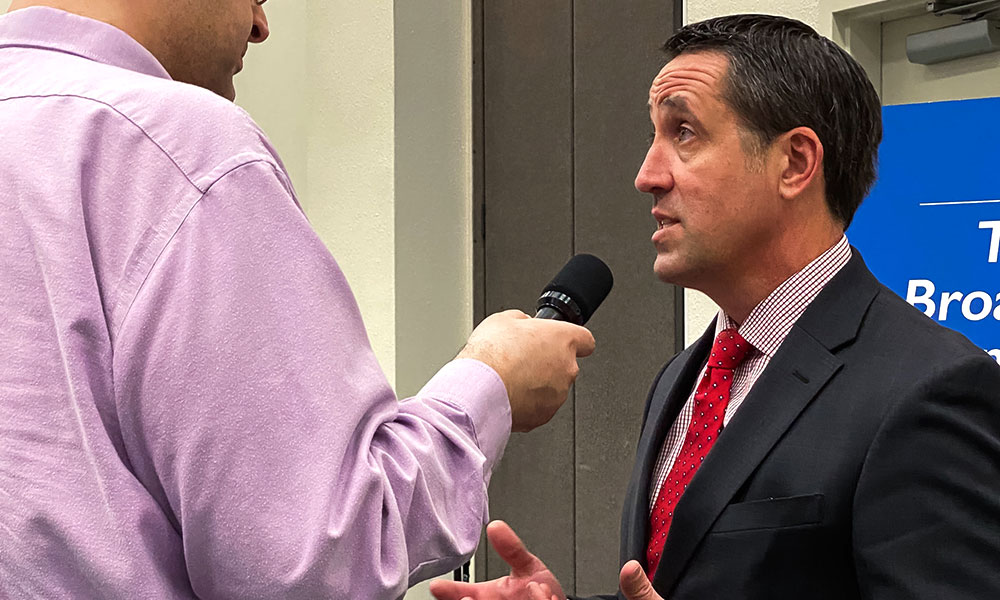Texas Communities Sound Off on Broadband Access Comptroller's Broadband Development Office Hosts Town Halls
Among the many things the pandemic has revealed, one is Texans’ reliance on quality broadband services that connect teachers to students, nurses to rural patients, farmers to markets and consumers to products. Access to reliable internet and broadband services contributes to a thriving workforce.

And yet lack of access to quality broadband threatens communities and their economic and educational prosperity. According to an Ernst & Young analysis of the U.S. Census Bureau’s American Community Survey five-year estimates for 2019, almost one in five U.S. households does not have internet of any kind, and 36 percent do not have wireline.
This lagging access disproportionately impacts poorer communities and communities of color. Rural Texans are especially hard hit. According to the U.S. Department of Agriculture in 2019, 25 percent of the nearly 247,000 farms in Texas had no internet access.
“The pandemic exposed a lot of cracks in the walls,” Comptroller Glenn Hegar said recently. “I’m not overstating when I say not having access to quality broadband is like not having access to electricity. Parents, teachers, consumers and farmers all depend on these services to live and do business. I strongly believe that Texans deserve access and support.”
Hegar kicked off his 2022 Texas Broadband Listening Tour with a visit to Prairie View A&M University. The full tour is taking place over two months, making stops in a dozen Texas communities. This “boots-on-the-ground” approach aims to collect raw, unfiltered feedback from Texans about their communities’ state of broadband services.
“Just because a community has DSL doesn’t mean it’s functional — it might be delivering 2 megabits per second (Mbps),” one Harris County resident reported at an event. (DSL refers to digital subscriber lines that use modems to move data over landlines.)
The Texas Broadband Development Office (BDO), administered by the Comptroller’s office, will compile feedback collected from the tour and use it in the state’s first broadband plan, which BDO will publish later this year. The plan will outline barriers to broadband use, among other challenges.
The Texas Legislature also tasked the BDO with overseeing and awarding grants, loans and other financial incentives to internet service providers who expand access to broadband service in unserved and underserved areas.
The town hall-style tour is multimodal, and feedback is being collected from in-person breakout sessions and conversations. Texans who are not able to attend meetings may still provide feedback and are encouraged to do so via English and Spanish online surveys. PDF copies also are available to print and distribute to libraries, community groups and other organizations and individuals without online services. Feedback will be collected through May 5.
“My goal is really to meet Texans where they are and deeply listen to their experiences with broadband in Texas,” Hegar said. “This is by far the best way for my staff to understand and help resolve this issue. I’m especially thankful for those who have taken the time to give us feedback, whether they participated in person or online.” FN
Take a deeper dive into how the Comptroller’s Broadband Development Office is working to resolve disparities in broadband access. Also check out the BDO toolkit to see specific ways communities can help close their digital divides.

